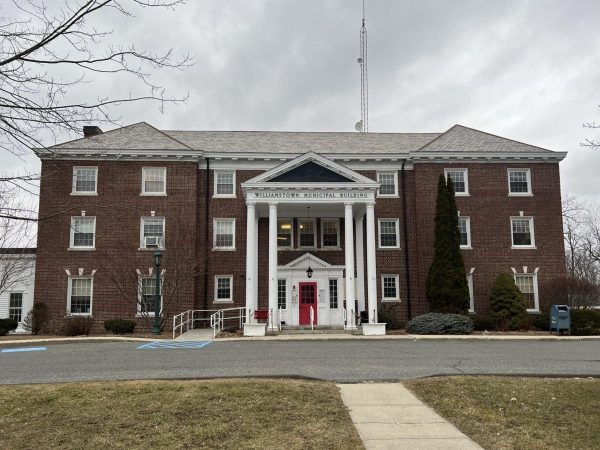
The Charter Review Committee (CRC) presented its proposed amendments to the Town Charter to the Select Board on Jan. 22. The Select Board is now drafting warrant articles based on the proposals, which voters can approve at the Town Meeting on May 21. If adopted, these changes would be the first major revision to the Town Charter — the Town government’s guiding document — since its adoption in 1956. The proposed changes would add a provision for recall elections and clear the document of inconsistencies and obsolete references.
The Select Board created the CRC in August 2022 to review the Town government and propose charter amendments to increase its efficacy. Last May, the CRC sent a survey to 3,200 Town residents seeking their views on potential amendments, then issued an interim report discussing potential amendments in August.
The most significant proposal is a provision in the charter allowing voters to recall elected officials, removing them from office before the end of their terms.
The recall provision is designed to be used only in extraordinary circumstances. “It’s a multi-step process that is designed to be hard to invoke,” said Select Board member and CRC co-chair Andy Hogeland ’76. Under the proposed amendment, voters would be required to collect signatures from 10 percent of registered voters, or about 500 people, in order to hold a recall vote.
“This is a substantial number of people who would think this is big enough of a deal that they want to actually have an election,” Hogeland said. He mentioned that about 1,000 people vote in a typical Town election.
Recall elections could not be initiated within the first or the last six months of any elected official’s term in order to avoid frivolous recalls. “We don’t want to have disgruntled voters show up in town hall the next day [after an election],” Hogeland added.
When a recall election is successful, the vacancy would be filled in the usual manner — by having the Select Board and remaining members of the recalled official’s board vote on a successor.
Elected officials who resign or are recalled are barred from being appointed to any Town office within two years, though they may still run for and win elected office. “That’s up to the voters,” Hogeland said. “They can decide what they do.”
The CRC has proposed other amendments, including a regular, every-decade charter review and an earlier due date for warrant articles, to allow the Select Board more time to prepare the warrant and make recommendations.
The CRC also considered replacing open Town Meeting with a representative system where voters would elect Town Meeting representatives rather than participate themselves.
Currently, each voter may attend Town Meeting, but attendance is low — in 2023, turnout was 7.5 percent. The CRC’s survey found that residents’ most common reasons for not attending Town Meeting were time conflicts and the inconvenience of attending. A representative town meeting would lower the time commitment required of voters, as they would only have to go to a polling place to elect a representative rather than attend an hours-long Town Meeting themselves.
However, over 80 percent of residents surveyed by the CRC said they preferred retaining the current format, a conclusion with which the CRC ultimately concurred. “It does not appear that a representative form of government, where the number of decision-makers is drastically lower, could bring increased transparency and inclusion,” the CRC stated in its report.
Select Board chair and CRC co-chair Jeff Johnson raised concerns about the lack of diversity in age among CRC survey respondents. About 50 percent of respondents were over the age of 70, while census data from 2022 indicates that 24.2 percent of the total Town population was over 65. “I’ve been trying to push the envelope in terms of the charter, specifically speaking to areas of diversity,” he said. “A younger group may have had a different focus.”
Following the withdrawal at last year’s Town Meeting of a warrant article proposing the use of ranked-choice voting (RCV), the CRC considered recommending RCV’s adoption in the Town, but concluded that while RCV better represents voters’ preferences, it is unsuited to the Town’s often uncontested elections.














